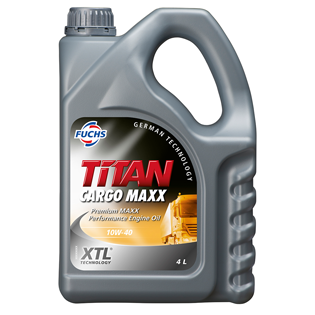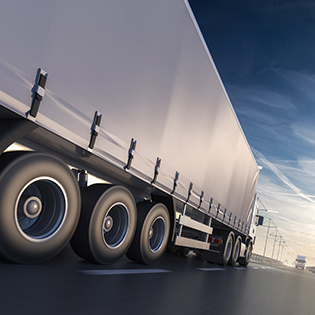Why do we talk so little about the opportunities of heavy vehicles when it comes to environmental matters?
Talking positively about vehicle lubricants, heavy goods traffic and the environment may not seem completely natural, but it’s definitely something we should be better at. Partly because the level of different kinds of emissions has actually already improved significantly over the years, and partly because there are major gains to be made by anyone who has heavy vehicles to lubricate.

In companies operating in the heavy segment, it is still common to use engine oil developed for older generation engines. Not many people realise how much they could save – both environmentally and financially – by switching to a new generation vehicle lubricant for heavy vehicles.
“A lot of people don’t know that thinner engine oil also works very well in heavy vehicle fleets,” says Johan Bolkéus, Product Manager within Automotive. They even often provide better wear protection than thicker oils, since they are easier to pump and therefore move more quickly through the system, for example.
Safeguard the post-treatment equipment
Modern engine technology, driven by stricter environmental classifications like Euro VI and Stage IV, along with customer demands for cleaner, more efficient engines, for example, has laid the foundation for brand new engine oils to enter the market. In fact older-type engine oils could even reduce the life span of catalytic converters, particulate filters and other components that help to manage emissions in modern vehicles.
“Quite simply, new trucks and construction vehicles place completely different demands on engine oil than old ones. On the other hand, using new generation lubricants in old vehicles is usually fine.” Bolkéus explains that this is particularly good for mixed fleets, since it reduces the need to keep several different engine oils in stock.
What does the choice of engine oil mean for the environment?
The superb viscosity and temperature properties of these oils, which are both thinner and more durable, are other benefits of switching from, say, a conventional engine oil to a more modern low viscosity one. They also offer far better wear protection, they protect modern diesel particulate filters, while also reducing oil consumption and maximising fuel economy.
So in actual fact, your choice of engine oil can make more a difference than you might think. It can affect your emissions, your fuel consumption and the durability of your engine. This is why you should choose oils that are approved for the longest possible drain and change interval, with operational reliability and performance that remain stable between oil changes.
“Reducing carbon dioxide emissions and fuel consumption by just a few per cent may not sound that impressive, but for a haulage firm, for instance, fuel consumption is a considerable expense,” says Johan Bolkéus. “It is a competitive advantage nowadays to have a vehicle fleet that consumes and pollutes as little as possible, and this also includes the life of the oil, filters and engine components.”
A safe, efficient choice
To meet modern requirements, here at FUCHS we have developed our unique XTL® Technology – a new generation of vehicle lubricants that add the very properties that new engines demand. For heavy vehicles, you’ll find the XTL® Technology in the TITAN CARGO MAXX series – engine oils developed alongside leading European engine manufacturers to meet the demands of modern high-tech engines and ensure that the newest, most sophisticated engines perform optimally.
“I hope that after reading this, more people will feel confident using thinner oils,” Bolkéus explains. “At the moment we’re still selling more 15W-40 than we should be, bearing in mind modern vehicles, and it would be great if more people could discover the benefits of the new generation of lubricants which are specially adapted for heavy vehicles.”
All articles
Do you want to know more?

Johan Bolkéus
Product Manager Automotive
johan.bolkeus@fuchs.com



